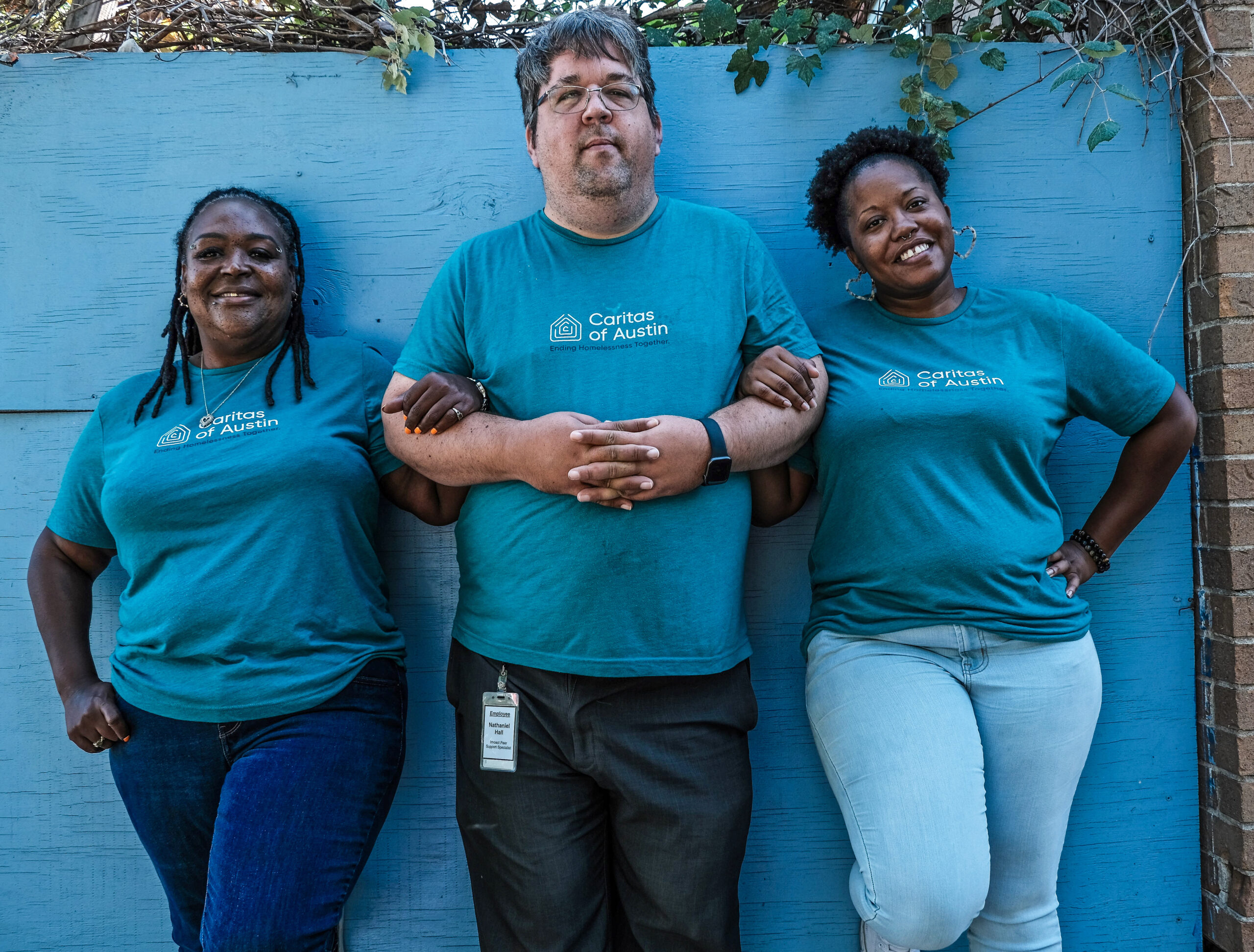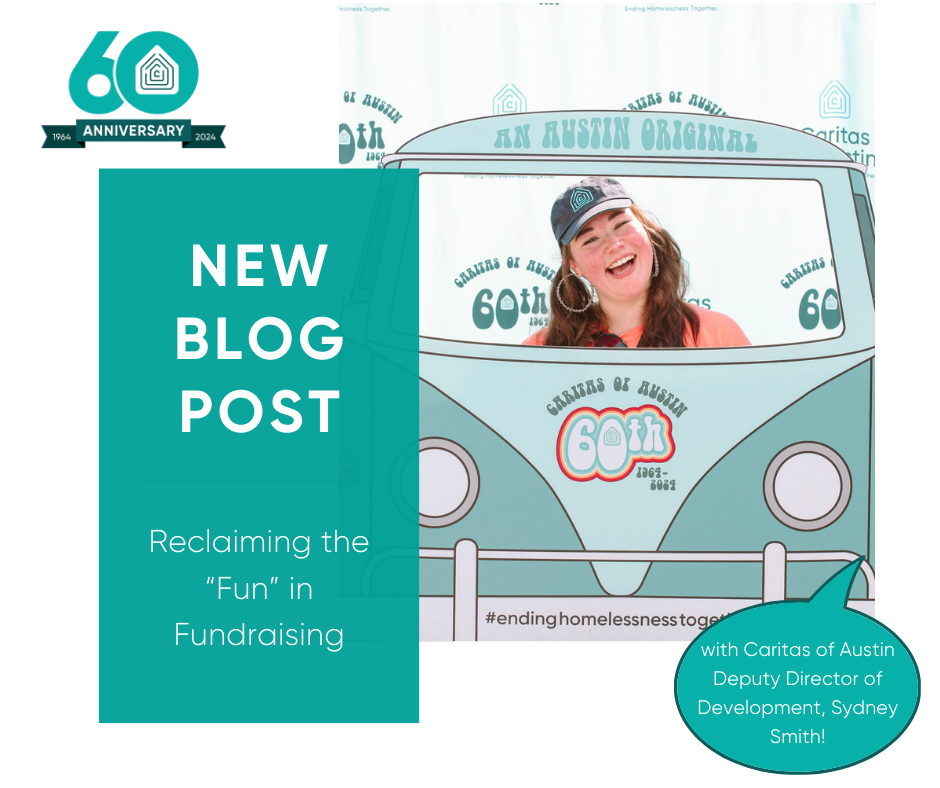One of our core values at Caritas of Austin is a commitment to improvement and innovation. As an organization, we are continually learning and evolving to implement the most effective practices for ending homelessness at the individual and community level.
Five years ago, the Caritas team added Peer Support professionals to our traditional case management model. Peer support is an evidence-based model of care where qualified peers provide an added layer of support to clients. While every team member – Case Managers, Housing Specialists, Employment Specialists and more – is vital in our daily client support, Peer Support Specialists’ lived experience provides a unique opportunity for connection.
“We all want someone who understands us,” says Caritas Veteran Specialist, Ebony Meads. Ebony served eight years in the Army and is passionate about Veterans supporting Veterans.
“Most people don’t understand the training we’ve gone through, the things you experience that you cannot unlearn in the military. Any Veteran who leaves the military could end up homeless because the military only teaches you how to be in the military, not how to live life afterward,” Ebony said.
Fortunately, Ebony had strong family support after leaving active service, which helped her transition. She said clients knowing she is a Veteran brings their guard down. “I can relate to the people we serve in a way that builds trust, gets them to open up, and allows us to support them,” she said.
Caritas’ Peer Support Specialists each bring unique life experiences that help to counter stigmas and positively impact our work to end homelessness. Nathaniel Hall said he openly shares his lived experience with mental illness and substance use disorders when interacting with clients. “By sharing that with people, it’s motivational that they may be able to experience recovery with their life as well,” Nathaniel said.
Within his team, Nathaniel primarily works with clients in maintaining their mental health. That includes taking them to appointments at Integral Care, ensuring they are taking prescribed medications, and joint wellness recovery planning. When clients restore their wellness, they are more likely to maintain stable housing.
“It’s different than a Psychiatrist or Therapist. Lived experience cannot be replicated, no matter how much education or training. It builds a different type of trust and rapport with a client,” Nathaniel said.
Peer Support Specialist Terrie Franklin says when she shares her story, she lets people know everyone’s journey is unique. “It doesn’t mean that’s the right way or the only way. I keep my work person-centered. It’s about me being supportive to them,” she said.
Seeing clients rebuilding their lives and restoring well-being is inspiring and satisfying for the Caritas team. Ebony said moving clients into their new homes is the highlight of her job. “For them, it’s been a long road. To get them a bed to sleep on, for them to have privacy and a sense of security, then they can go out to do bigger and better things. They have a home address now. They can now get a driver’s license and then come home, get a good night’s, rest and go back out tomorrow,” she said.
Nathaniel said he loves seeing clients make choices that lead to their enhanced wellness and recovery. “I am currently working with a man who was homeless for over 30 years. I’m so happy to see him love his new apartment and take good care of it,” Nathaniel said.
Your support of Caritas of Austin not only provides a stable place to call home for hundreds of people each year. It enables a collaborative team of professionals, including Peer Support Specialists, to connect with and support people in the invaluable work of restoring dignity. Thank you for your partnership!
Photo Credit: Camille Wheeler



